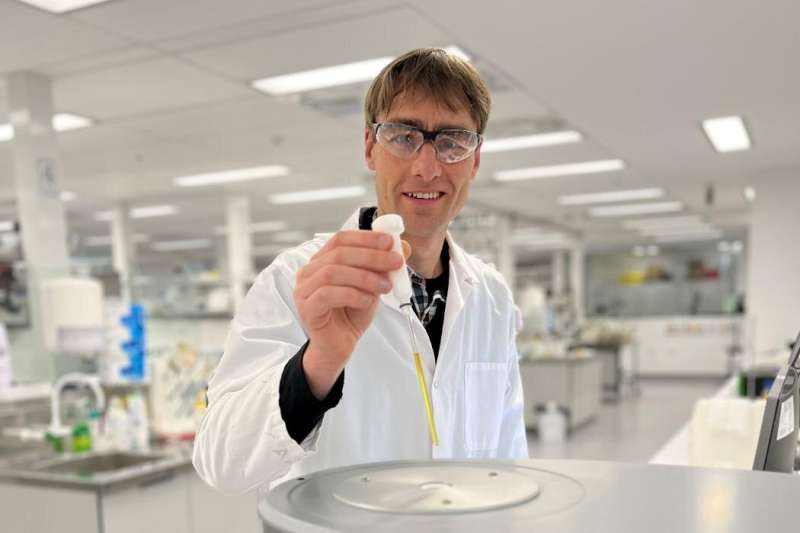This article has been reviewed according to Science X's editorial process and policies. Editors have highlighted the following attributes while ensuring the content's credibility:
fact-checked
trusted source
proofread
Refining NMR technique to work toward new drug testing tool

University of Canterbury Chemical and Process Engineering Professor Daniel Holland and his team are refining a technique called nuclear magnetic resonance (NMR) and plan to use it to measure the content and concentration of illicit drugs more easily and accurately.
Most drug-related harm is caused by people taking new substances in unknown concentrations and Holland says the new approach to NMR analysis would allow for highly accurate, fast and accessible drug testing.
"These measurements would assist policing and health agencies to track which substances are available on the street, and determine their exact concentrations, helping to reduce the harm caused by people taking them," he says.
NMR is a leading technique in analytical chemistry but at present it is only used in universities due to its high cost and complexity. Holland says compact, benchtop NMR systems have been developed but are not yet widely used.
"We're analyzing data using machine learning so that we get the same accuracy and precision from a benchtop tool as you would from a full-size system. We're hoping to be able to extend this analysis to new and emerging substances using the world's first fully-automated quantitative analysis of NMR data."
Harm caused by illicit drugs costs Aotearoa New Zealand an estimated $1.8 billion a year, and in the United States illicit drug related deaths are increasing at a rate of 10,000 each year.
Holland says quick identification of new substances, coupled with public health messaging, has the potential to save lives. "Research shows that up to 60% of New Zealand university students admit to taking illicit drugs and about 15% of the general population are regular users of such substances."
He says the illicit drugs market is completely unregulated and 50 new illicit substances are reported each year. On the street these substances are sold as "synthetic" or "designer" drugs. "At the moment we often can't identify exactly what these new drugs are, and we can't quantify the amount of the active substance. With our new NMR technique, we can make this process faster and more accurate, while also keeping it relatively cheap and accessible."
Holland says there have been recent instances in Aotearoa New Zealand where a substance that was sold to people as MDMA (Ecstasy) was actually eutylone, a synthetic drug often referred to as "bath salts," which can cause dangerous side effects and even overdose.
Aotearoa New Zealand has been world-leading in terms of legalizing drug checking services, making it the ideal place to develop this new testing technology, he says. The 2021 Drug and Substance Checking Legislation Act aims to create a safer environment for people to get drugs tested.
Holland has been working closely with ESR (the Institute of Environmental Science and Research) and says the new testing approach could be used by law enforcement, drug testing centers and in forensic testing labs.
He believes drug testing using benchtop NMR is unlikely to be carried out on site at festivals unless they have a mobile lab-type environment, but it could have a place in drug checking centers where people can check illicit drugs before going to a festival or party.
Holland's research project also has a social science and health component, and he plans to work with social scientists at UC to investigate the reasons behind drug use, how potential harm can be reduced and current barriers to drug checking.
In the future, the methods the team is developing could be adapted for a variety of other analytical chemistry applications, such as in food quality control, chemical or polymer manufacturing, or pharmaceutical manufacturing. The eventual commercial market for analysis across these sectors could be worth US$2 billion, Holland says.



















